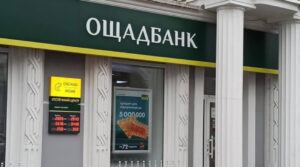
Fintonik LLC (Kyiv) won the auction held by the state-owned Oschadbank on December 10 for the sale of a pool of loans to the Ukrlandfarming group of companies (Ukrlandfarming, ULF), offering the minimum possible price of UAH 1.13871 billion at a starting price of UAH 5.03852 billion.
According to data from the Prozorro.Prozori system, Fintonik, 80% of which is owned by Andriy Shpylka from Kryvyi Rih and 20% by former SCM director of new business development Mykola Nesterenko, was the only participant in the auction.
According to the protocol, the remuneration of the electronic platform SKOMPANI LLC, through which the application was submitted, amounted to UAH 17.08 million and will be paid from the UAH 75.58 million guarantee deposit.
Earlier, Oschadbank noted that this stage of the sale, at which the minimum price was reduced by 44%, was the final one, because after a series of previous auctions with a gradual reduction, the possibility of further price adjustments had been exhausted.
The auction included claims under loan agreements and related collateral agreements of borrowers — the ULF group of companies (PJSC Raise-Maksymko, PJSC Agroholding Avangard, Imperovo Foods LLC) and Pakko Holding LLC.
“The current auction is the last chance for potential investors to purchase a pool of secured loans, which includes production assets throughout Ukraine: elevators, poultry farms, an egg processing plant, etc., as well as guarantees from individuals and legal entities,” Oschadbank emphasized. It noted that if the auction is unsuccessful, it will proceed with the active implementation of a liquidation scenario to collect the debt.
In early December this year, the Antimonopoly Committee of Ukraine (AMCU) fined TNA Corporate Solutions LLC (USA) and American citizen Nicholas Piazza (Nicholas Piazza) for violating the law when concentrating shares in the authorized capital of 14 enterprises of the Ukrlandfarming group, which was one of the largest agricultural holdings in Eurasia.
The agricultural holding claims that it remains one of the largest in Ukraine despite $1.2 billion in losses due to Russia’s military aggression. A significant portion of ULF’s financial obligations have been in default since 2017. In November 2017, a group of international creditors of Ukrlandfarming and Avangard estimated the total amount of ULF’s debt obligations at approximately $1.65 billion in a letter to the Ukrainian government: about $1.25 billion in debt obligations to international creditors and about $400 million to Ukrainian banks (including state-owned banks). In turn, according to their data, the debt to international creditors at that time consisted of approximately $775 million in Eurobonds and $475 million in credit debt to European and American banks (and their respective credit risk insurers).
In October last year, Ukrlandfarming announced that the lawsuits filed by Gramercy Funds Management LLC and its affiliates against Bakhmatyuk, Piazzi, Oleksandr Yaremenko, SP Capital Management LLC, TNA Corporate Solutions LLC, and/or Maltofex Ltd had been voluntarily withdrawn with a final waiver of claims, and the parties had entered into a confidential settlement agreement in connection therewith.
“Now that the litigation against Mr. Bakhmatyuk has been concluded, the company can more freely negotiate with creditors and focus on growing and rebuilding its business after losing approximately half of its value due to Russia’s invasion of Ukraine,” the release said at the time.
According to the NBU, as of early September this year, Oschadbank, with total assets of UAH 479.1 billion (12.3% of the total), ranked second among 60 banks in terms of this indicator.
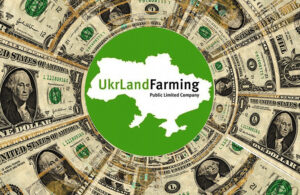
Oschadbank has put up for sale at auction the right to claim under loan agreements and relevant security agreements to borrowers of Oleg Bakhmatyuk’s Ukrlandfarming group of companies at a starting price of UAH 4,984,663,467.30 (excluding VAT), the bank’s press service reports.
According to the report, the property of Rise-Maximco PJSC, Avangard Agroholding PJSC, Impevo Foods LLC, and Pacco Holding LLC is up for auction.
These loans are secured by production assets throughout Ukraine, including elevators, poultry farms, an egg processing plant, etc., as well as guarantees from individuals and legal entities.
The auction is scheduled for April 14, 2025.
“Ukrlandfarming is one of the largest agricultural holdings in Eurasia. It is engaged in grain growing, cattle breeding, distribution of machinery, fertilizers and seeds.
“UkrLandFarming remains one of the largest agricultural holdings in Ukraine, despite $1.2 billion in losses from Russia’s military aggression against Ukraine. In particular, we are talking about the largest poultry farm in Europe, Chornobaivska (Kherson region), where 4.5 million poultry were killed, property and communications were destroyed, and the occupiers took the equipment to the territory of the Russian Federation. The enemy also destroyed a number of poultry farms in other regions: poultry farms in Mykolaiv region, Donetsk region (Donetsk poultry farm, as well as in Volnovakha and Bakhmut), and poultry farms in Kyiv region were destroyed, looted or significantly damaged by shelling. The company lost 160,000 hectares of arable land for agricultural production, and regional bases and elevators in Kherson, Mykolaiv, Donetsk, Luhansk, Zaporizhzhia, and Kharkiv regions, as well as in Kyiv region and near Kyiv, were destroyed and looted.
A significant portion of ULF’s financial obligations have been in default since 2017. In November 2017, a group of international creditors, Ukrlandfarming and Avangard, in a letter to the Ukrainian government, estimated the total amount of ULF’s debt obligations at approximately $1.65 billion: about $1.25 billion of debt obligations to international creditors and about $400 million to Ukrainian banks (including state-owned banks). In turn, the debt to international creditors, according to their data, amounted to approximately $775 million in the form of Eurobonds and $475 million in the form of loans to European and American banks (and their respective credit risk insurers).
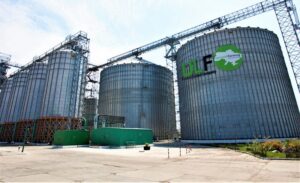
This season the agricultural holding “Ukrlandfarming” is planning to sow 300-330 thousand hectares, which is more than a year ago, due to deoccupation, the owner of the holding Oleg Bakhmatyuk said to the agency “Interfax-Ukraine” on Monday.
According to him, about 30 thousand hectares in Chernihiv, Sumy and part of the Nikolaev regions are in question because of mines.
“Kherson, for sure, we will not have time for sure,” he said, adding that Ukrlandfarming lands in Donetsk, Lugansk, Zaporozhye and Kherson regions are still under occupation.
At the same time, Bakhmatyuk recalled that last year, the occupiers disrupted the sowing season in Kyiv, Chernihiv and Sumy regions.
The owner also said that significant changes will be in the structure of cultivated land, in particular the area under corn will be smaller, because it requires more investment, in contrast to, for example, sunflower.
In addition, Bakhmatyuk said that inspection of the Chornobaevskaya poultry farm from the “Ukrlandfarming” holding “Avangard” in the Kherson region showed the unrealistic resumption of its work in current conditions “neither for technical reasons, nor for people.
According to him, in fact, only poultry houses “with iron” remained at the factory, while all the climate control cabinets, all the engines and machinery were stolen. “Everything that could be unscrewed and broken off was unscrewed and broken off,” the owner of Ukrlandfarming stated.
He pointed out that in such conditions “Avangard” plans to increase production at the factory in Kamyanets-Podilsky.
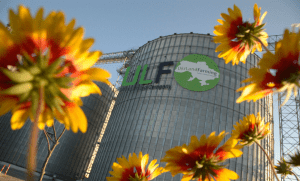
Due to a shortage of working capital caused by pressure from law enforcement agencies, the agricultural holding Ukrlandfarming has reduced the livestock population from 52,000 to 15,700, the owner of the agricultural holding Oleh Bakhmatiuk has said.
“It also requires working capital, which, unfortunately, we do not have, because credit lines are being closed. Let’s be reasonable, it is unlikely that animal husbandry will recover,” he said in an interview with Interfax-Ukraine. Bakhmatiuk said that the number of employees in animal husbandry decreased by 7,000, while in the Avangard sub-holding, which produces eggs and egg products by 5,500.
“At the peak there were 32,200 [employees], and now it is 17,300-17,500. For a year and a half, we laid off about 13,000-13,500 people in two main areas – poultry farming and animal husbandry, because they needed borrowing. This situation was due to the reputational terror that has been waged against the company and personally me as a shareholder over the past year and a half,” the businessman said.
He said that Ukrlandfarming is trying to preserve the agricultural business, in particular, the land bank, after previously falling by 170,000 hectares, has recently stabilized at about 470,000-475,000 hectares: almost 200,000 lease agreements and 600 near settlements.
“Now we must sow, carry out the sowing campaign correctly, with no crediting at all. We have prepared for this. It is twice as difficult for us as for everyone, but we will try to pass it,” Bakhmatiuk said.
According to him, the company failed to take advantage of the rise in prices for grain and corn, because it had to sell goods quickly due to lack of working capital.
The owner of the agricultural holding said that he would try to keep the company at its current size, but if pressure continues, it is likely that it will continue to decline. “Any defense, eventually, retreats. Even if not so sharply, but if in a year and a half we lost 35% of the company, then, for sure, this year we can lose another 15% or 10%,” he said.
Bakhmatiuk said that he remains in dialogue with creditors. However, the latter negatively perceive the events around the company. “They do not support me out of great love, probably. If to take it reasonably, they do it forcibly. But they understand that if there is a loss of the company, then there will be total losses for them. I am fighting for my own, and for them,” the businessman said.
According to him, the conversion of debt into shares in this situation will not fundamentally solve the problem. “The question is not about the shareholders. They are, in fact, shareholders at the expense of loans… It is not a problem with the share capital. But the problem is that an agricultural enterprise cannot live without borrowing, because you have a cycle of six to eight months,” Bakhmatiuk said.
In his opinion, creditors will so far refrain from filing a lawsuit against the company, as this will entail a “domino effect” and the loss of 95% of invested resources. “While these constraining factors are important for them, I maintain some kind of dialog with them. But the arguments are getting smaller. You perfectly understand that the time frame is not eternal: in six months or a year the issue must be resolved,” the businessman said.
He said that Ukraine today is in the “agrarian trend” and has good opportunities to increase the export of raw materials in the coming years.
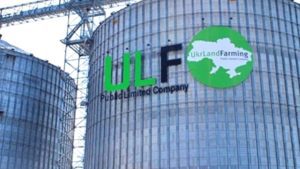
Oleh Bakhmatiuk and his Ukrlandfarming agricultural holding at the end of October sent an official offer to the Individuals’ Deposit Guarantee Fund as an arbitration manager for the phased repayment of UAH 8 billion of debts to VAB Bank and Bank Financial Initiative owned by the businessman and withdrawn from the market, and on making a UAH 500 million guarantee fee. “Then UAH 1 billion a year. This offers remains valid, and I am actively working to ensure such financing,” Bakhmatiuk told Interfax-Ukraine.
He said that last week he had been actively negotiating in the Middle East, in particular with representatives of Cargill.
“I didn’t run anywhere, I’m actively working,” the businessman commented on reports of an alleged escape in connection with the arrests within the VAB Bank case in Ukraine that began on November 11.
Bakhmatiuk noted that in the coming days he would continue negotiations with trading companies and investors on the previously outlined program, but then he plans to return to Ukraine and will work with lawyers.
According to him, Ukrlandfarming annually produces 2.5 million tonnes of grain and under such commodity flows would be able to attract money necessary for the phased payment of debts.
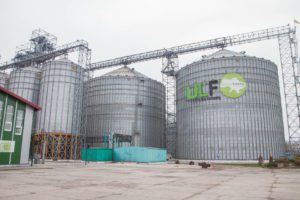
Ukrlandfarming, one of the largest Ukrainian agricultural holdings, in the framework of its vertical integration strategy retains the plan for the construction of a port for grain exports and seeks investors for this project, evaluating its value at $200 million to $800 million. “The project, which costs from $200 million to $800 million, is currently suspended, but we are actively looking for partners to join us and provide capital,” Oleh Bakhmatiuk, the owner of Ukrlandfarming, said in an interview with Die Welt.
In his opinion, the port should become the “pearl” of the company. “We hope that after the elections a window of opportunity will open and we will take a step towards investors in Europe, Asia, America, and the Middle East,” he added.
He said that after losing almost 50% of production capacity in Crimea and Donbas, Ukrlandfarming managed to significantly restore the lost production and reduce dependence on the domestic market, increasing the share of exports to 55%.
“Our strategy is to sell 70% for exports and 30% in the domestic markets, thereby reducing our dependence on sovereign risk,” the owner of the company said.
He clarified that currently Ukrlandfarming exports goods to about 40 countries and is considering access to the markets of Singapore and Indonesia.